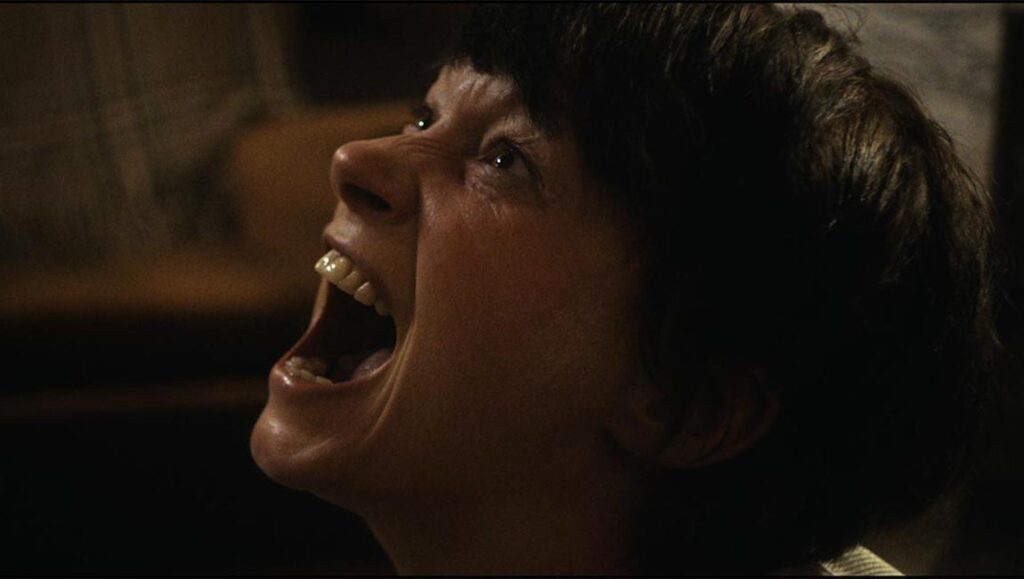You Are Not My Mother is appealingly steeped in the folk-horror tradition, but has a suffocating visual aesthetic and the unfortunately distinct feel of a padded-out short film.
Irish teen Char (Hazel Doupe) lives in a North Dublin housing estate with her Grandmother Rita (Ingrid Craigie), her uncle Aaron (Paul Reid) and, most importantly, her clearly troubled mother Angela (Carolyn Bracken), who appears to be in the throes of some sort of depressive episode. “I can’t do this anymore,” she says brusquely, and Char seems accustomed to that, so Mom probably has a history of not quite keeping it together. When Char finds Angela’s car abandoned while walking home from school, she immediately suspects trouble, of course. Uncle and Grandma are acting a bit strange too, but before anything can really be done about it, Mom returns home, seemingly changed. Something’s off. Worse, Char’s world is an intensely dreary one, full of drab, rainy concrete and back alleys, and she’s also beset by bullies. New Angela isn’t the miserable stay-in-bed one of the past, but her energetic replacement is almost more unsettling.
Writer-director Kate Dolan’s film comes with a sturdy genre pedigree, steeped as it is in both traditional folklore and urban dread. It’s a strain of so-called folk horror experiencing a bit of a resurgence in films like A Hole in the Ground, Relic, and The Feast. It’s fertile terrain, to be sure; there’s plenty of iconography and myth to choose from, but these films also tend to make their subtext — of filial fractures and emotional trauma — the sole text at hand, and You Are Not My Mother (the title really says it all) is no exception.
The performances are uniformly solid, with Doupe suitably timid and anxious, particularly in her scenes where a cautious friendship develops between Char and one of her tormentors. Bracken especially stands out; she’s frequently required to pull off some real whiplash moodiness. Unfortunately, there isn’t a lot to these characters beneath the blunt articulation of their sadness. Dolan shores things up with some deliberately simple compositions peppered with the occasional flourish like a droning zoom or a frame bifurcated by a mirror, with intentionally muted colors and deliberately monotonous production design that simultaneously indicates Char’s general misery but also feels a bit visually suffocating to look at. Even at a brisk 90 minutes, though, the story seems padded, and a lot of time is devoted to some serious shoe-leather (especially regarding Char’s torment at the hands of the local mean girls). You would be forgiven for thinking this story was more suited to a short film than a feature.
Originally published as part of TIFF 2021 — Dispatch 6.


Comments are closed.